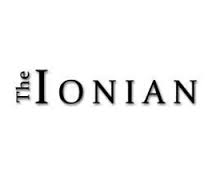The Brother John G. Driscoll Professorship in Jewish-Catholic Studies welcomed journalist Andrew Nagorski to lecture about his book entitled "The Nazi Hunters” in Romita Auditorium on Wednesday.
Dr. Elena Procario-Foley, the director of Jewish-Catholic studies, introduced Nagorski as an award-winning journalist and foreign correspondent and editor for Newsweek. He also served as the vice president and director of public policy for the EastWest Institute in international affairs.
Nagorski published his first book, "Hitler Land: American Eye-Witnesses to the Nazi Rise to Power,” in 2012 and “The Nazi Hunters” in 2016.
Nagorski praised the efforts of the Jewish-Catholic Studies program for hosting the event. He raised the question of how the memory and lessons of the Holocaust will be kept alive with less and less living survivors to give first-hand accounts.
“As big as the Holocaust was, the bigger issue is about human nature, human psychology and human behavior,” Nagorski said. “I think that is one of the reasons why, no matter what ones background, we keep coming back to this and we keep asking ourselves how could this have happened.”
During the Cold War, Americans seemed to lose interest in bringing Nazi war criminals to justice, Nagorski said. “The Nazi Hunters” discusses the efforts of those who were persistent in finding and punishing Nazis.
He emphasized the point that “just following orders” is not a valid excuse for war criminals. Officers were recruited to work in the concentration camps, but they could have said no, according to Nagorski. On top of that, Nagorski stressed that the war criminals should take responsibility for what they did.
“One of the things that my experience in journalism has really taught me is that history is not something that is an impersonal force, that things happen and they are predestined,” Nagorski said. “Things happen because of individual actions.”
A lot of people wanted to forget what had happened during the Holocaust, according to Nagorski, because it was such a tragedy and a low point in human history. Because of the fact that some people chose to ignore it, however, there are efforts to keep the issue alive in hopes that it will not happen again. Trials are still going on today to bring Nazi war criminals to justice.
Students in the Jewish-Catholic studies program planned and carried out a candle-lighting ceremony. They lit a candle in remembrance of Nazi-run camps during the Holocaust and said a prayer for the victims.
In addition to the lecture by Nagorski, Stephen Goldberg presented the Susan J. Goldberg Memorial Teacher Award in remembrance of his late wife. Susan Goldberg was a Holocaust teacher and each year the award is given to a Westchester educator. He presented the award to Stephanie Catania, a social studies teacher at Somers High School, who will teach a human rights elective next year that covers the Holocaust.
Catania is one of 15 recipients of the award. Goldberg presented her with a certificate and a check for $400. Catania accepted the award with a speech in which she explained the importance of her job.
“My job is to teach and to hopefully inspire my students to show empathy and compassion, to make a difference, and to speak out when they see injustice,” Catania said. “As educators, we must teach our students to recognize the signs of authoritative rule and the marginalization of people so that history does not repeat itself.”









